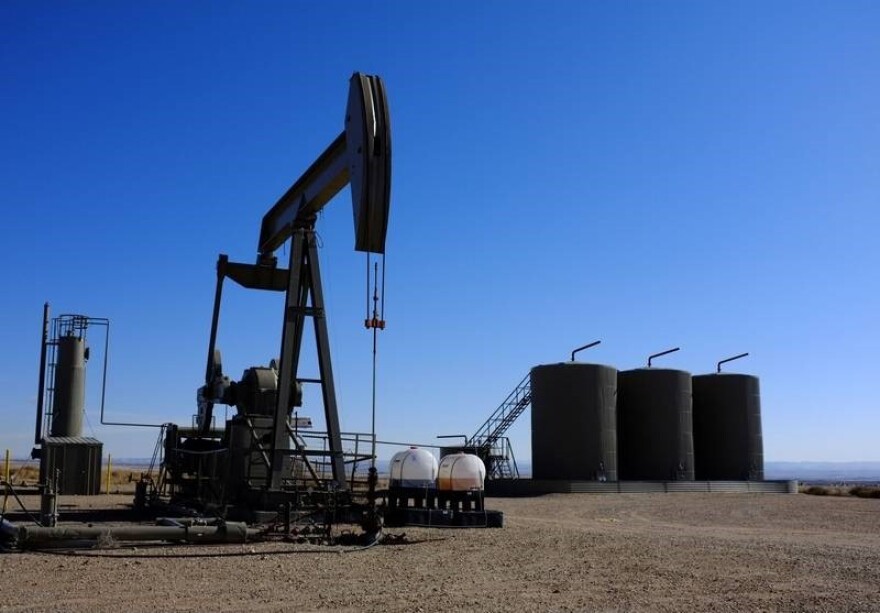An increasing number of residents and public interest groups say Utah has essentially hijacked funds meant to alleviate the local impacts of oil and gas drilling.
In fact, it’s being charged that Utah does the opposite, and is spending large amounts of money on private infrastructure for the extraction industries. Public interest groups claim that in recent years the CIB, Utah’s Community Investment Board, has directed tens of millions of dollars toward oil pipelines, railroad and power transmission lines to serve the southeast Utah oil fields, and most controversial of all, a proposed coal export terminal in Oakland, California. They argue that the money that could have been spent on water and sewer improvements in Price, a new city hall for Castle Dale, or a new jail in Grand County.
Christina Sloan is the Moab attorney for concerned residents from numerous counties, and green groups that include Living Rivers and the Nine Mile Canyon Coalition.
“The Federal Mineral Leasing Act, which is referred to as the MLA, states that CIB funding must be used for planning public facilities or public services,” she said. “The CIB has hundreds of millions of dollars that they’re playing with over the course of years. Only recently, I’d say within the last 18 months, has the public paid attention to how they’re using these funds.”
Sloan is asking the Utah Attorney General to reject the coal terminal and to clarify that mineral lease funds are meant for public projects and services and not for private industry, or for anything outside of Utah.
“Under the CIB’s own rules the public is supposed to both get advanced information and have an opportunity to affect the proposals. Unfortunately, that’s not happening. So for example in the case of the coal terminal, some of the CIB board had never seen any documents related to this coal terminal project until the very meeting it was proposed in,” she said.
Sloan says that at every level, the law defines public purposes to mean things like schools, hospitals, roads and sewers, or government services to the public.
“Part of the reason why the AG has not responded formally is that the coal export terminal is involved in litigation and they are waiting to see if this is a matter that’s going to go forward anyway. I would certainly expect that legislators both at the Oakland level and at the state level in California would be calling the Utah Attorney General’s office and even the Governor’s office to weigh in on this issue.”
Aaron Paul is a staff attorney for the Grand Canyon Trust who also believes that spending mineral royalty money on the industry itself is illegal. Paul is opposing the Oakland coal terminal, on behalf of the Trust, as well as the Sierra Club, the Center for Biological Diversity and Earthjustice.
“I’ve never seen an example of what we’re seeing here, where a state agency that’s charged with allocating how that money is used is essentially turning it around and investing it back in more mineral development, which we think will just aggravate the injuries that they’re supposed to be alleviating, by promoting more coal mining in Utah,” Paul said.
Paul has also petitioned the Utah Attorney General to halt the coal terminal.
“We haven’t received a response. It’s my understanding that we may not receive a response,” he said. “You know, one way this may play out is that the board will ultimately conclude that it can’t use the money in the way it’s proposing to use it. I think there’s some possibility of a federal intervention, but to be candid the feds don’t get involved in auditing how states use this money.”



